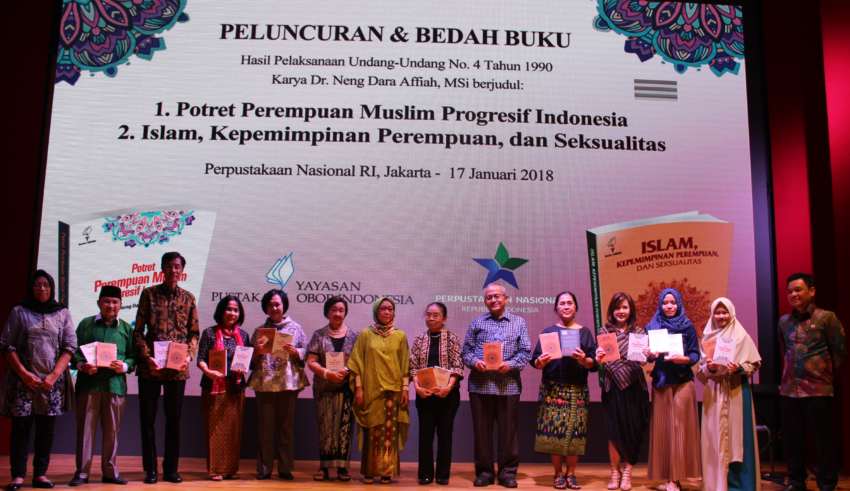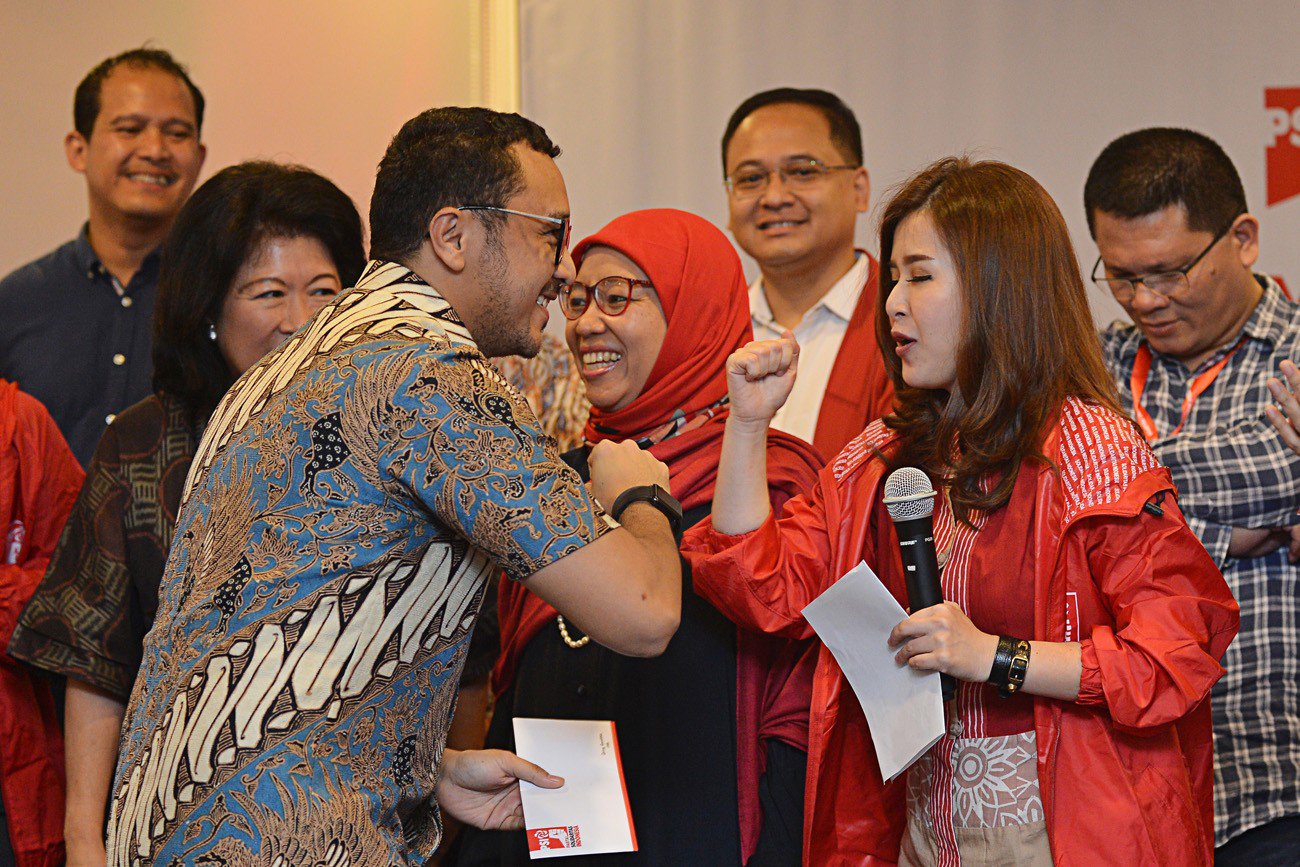By Julia Suryakusuma.
Schizophrenia. We’ve all heard of this disorder, right? This is the short, non-medical definition I found in a dictionary: “A mentality or approach characterized by inconsistent or contradictory elements.” Some would call it, hypocrisy.
We all know people like that, don’t we? What if I said that Muslims are currently suffering from this mental illness? It falls into the category that some scholars call “cultural schizophrenia,” whereby an entity is “crushed between two or more cultures, disabling them from balancing the dictations of the cultures.”
In the case of Islam, in Indonesia as well as elsewhere, it’s the failure of conservative and fundamentalist Muslims to reconcile Islamic teachings and values with modernity and the principles of human rights and democracy. It has a lot to do with the negative patriarchal values that imbue conservative Islam which sees women and “the other” (minorities, non-Muslims, etc., in short, others different from their prescribed brand of Islam) as being inferior, and subject to their judgment, dictates and control.
It’s this deep disillusionment and dismay not just at conservative Islam, but mainstream Islam in Indonesia that has led Neng Dara Affiah to be involved in decades of activism as well as scholarship. She feels it has strayed from the true tenets of a religion that is about peace, tolerance and mutual support.
Neng Dara, currently a lecturer at Nahdlatul Ulama University and former commissioner of the National Commission on Violence Against Women (Komnas Perempuan), recently launched two books at the National Library of Indonesia, both published by Obor Foundation.
The first book, entitled Portrait of Progressive Indonesian Muslim Women, is based on her PhD dissertation, a detailed and systematic account of progressive Muslim women’s movements in the New Order and Reform Era.
The second is tantalizingly called Islam, Women’s Leadership and Sexuality, an anthology that tackles issues deemed sensitive in Islam: women’s leadership, polygamy, the hijab, virginity, child marriage and sexuality. She also writes about radicalism, sectarianism and Muslim feminist movements as a means to restore Islam’s true values.
The four panelists discussing the books were as highly qualified, interesting and unique as Neng Dara. The first was KH Iman Nashkei, one of a growing number of male feminist Muslim scholars and a commissioner at Komnas Perempuan. He said Neng’s writings could supplant or at least supplement the kitab kun-ing (traditional Islamic texts used in pesantren or Islamic boarding schools). Pretty bold statement! Islam enters all areas of life, even the most private areas such as the bedroom and toilet, so how come it’s mostly men who write religious texts?
Septemmy E. Lakawa, the second speaker, is a priest who teaches mission studies, contextual theologies and feminist constructive theology at the Jakarta Theological Seminary. She said Neng’s writings are radical and the kind of Islam that Indonesia needs. Neng offers a reinterpretation of Islam within the context of the social and political developments of Indonesia’s history. She proves that Islam is multidimensional and makes clear that it is compatible with modernity, and certainly not the antithesis of democracy as Muslim fundamentalists claim.
Feminist Muslim scholars like Neng Dara bring the womb, and sexuality into the public realm, which is important as women’s bodies are the contested site of various ideological battles that serve the broader purpose of extending conservative Muslim influence into the social and political spheres.
Yuniyanti Chuzaifah, the third speaker, is currently one of the two vice chairpersons of Komnas Perempuan. She feels that Neng should be a feminist version of Quraish Shibab, a highly regarded moderate Islamic scholar, to address the current irrationality of Islam. Neng is hardly an ivory tower scholar, as an academic and activist, she engages in praxis and tries to ground Islam through women’s experiences.
Last but not least was Tsamara Amany, an impressive, smart, knowledgeable, articulate, gutsy 21-year-old politician who dares to take on crusty male politicians like Fahri Hamzah, accusing him of being sesat (misguided) on various controversial issues such as corruption, publicly ridiculing him on YouTube and Twitter. Tsamara is a member of the Indonesian Solidarity Party (PSI), a new political party set up in 2014, headed by Grace Natalie, 35, a former television presenter who limits PSI membership to the age of 45. Yeah sista, time for regeneration of the old corrupt coterie of male politicians! Can I join even if I am 63? I am very young at heart and have long written about what you fight for!
Tsamara feels empowered by Neng Dara’s books as she feels it addresses her anger at the way men look down on women and also because Neng shows that feminism can be based on Islamic values. Tsamara is also very concerned about the phenomenon of hijrah, the spread of conservatism among young, educated Muslims, including celebrities who trade their dugem (night-life, bar-hopping) ways for a conservative, Muslim garbed, preachy lifestyle. Tsamara feels the need to spread the ideas that Neng promotes in a more digestible, bite-sized version for the younger generation who were weaned on social media.
The attendees at the launch were a reflection of what an ideal, tolerant, pluralistic Indonesia would look like: Inter-generation-al (from 80s to 20s!), inter-class, inter-religious, with members of LGBT community also present.
Neng Dara is not the first progressive Muslim feminist scholar. Before her there was Musdah Mulia, a professor of politics at the Syarif Hidayatullah State Islamic University, Jakarta and co-founder of the Indonesian Conference of Religion and Peace that promotes religious pluralism. If Musdah was considered controversial, especially for her defense of sexual minority rights, which Neng also advocates, in the current climate in Indonesia that is more volatile, Neng will also have her share of haters.
I for one felt the launch to be an oasis in what now seems to be an increasingly barren desert of religious intolerance in Indonesia. In 2017,the Congress of Women Ulema (KUPI), the first event of its kind in the world, was held in Cirebon. It was revolutionary in many ways and Neng Dara’s books certainly continue to carry the torch for an enlightened Islamic revival in Indonesia, led by Muslim feminists.
Neng Dara, and all her feminist compatriots, are trying to heal Islam and Muslims in Indonesia who are trapped in this self-imposed cultural schizophrenia that poses a real danger for the unity-in-diversity spirit that makes Indonesia. After all, we want to live up to our reputation of being a moderate Muslim country, right?
The writer is the author of Julia’s Jihad
The Jakarta Post | Wednesday, January 24 2018



